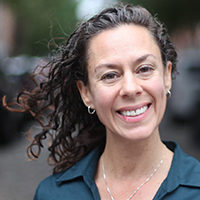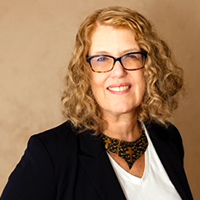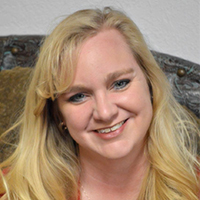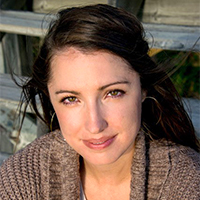
What happens when you die? That was the question posed to several hospice care professionals across the U.S. in a Parade Magazine article.
NASW member Carolyn Gartner, an LCSW with Visiting Nurse Service of New York Hospice and Palliative Care, said she has found patients hold a perspective of gratitude and acceptance that parallels what she’s been taught through her meditation practice.
“I feel my older patients really understand the idea of letting go, and not letting small things bother you,” Gartner says in the article. “We get so caught up in the day-to-day, and I see my older patients are a good role model for how those things pass.”
“My observation is that people will often die the way they live, so it’s really interesting to see how people process what they’ve gone through,” she says.
While the patients may seem ready to accept what comes next, Gartner says it’s the families who often need help coming to terms with it. VNSNY Hospice assists with the pre-bereavement process for family caregivers so they can see beyond the grief and enjoy the time they have left with the patient.

Faith is supposed to offer a sanctuary from suffering. But it can turn ugly for many.
NASW member Pamela Pater-Ennis operates an interfaith counseling service that helps people “make sense of it when religion turns bad.”
An article posted at NorthJersey.com, notes that Pater-Ennis was ordained in 1984 in the Reformed Church in America, a mainline Protestant denomination.
Her book "Out in the Pulpit," chronicles the journeys of 13 lesbian clergy who struggled to reconcile identities as Christians and lesbians. The text grew out of her angst as a straight ally, Pater-Ennis explained.
The women she profiled were heavily involved in their churches growing up but were shunned when they came out as gay, Pater-Ennis said. They mourned the loss and yearned to return to religious life, but first they needed to re-examine their own spiritual identities, explore their pain and find their way to a community where they could be accepted. Eventually, they were all ordained.

One social worker travels up to 120 miles per day to treat small-town Texans overwhelmed with grief and stress due to COVID-19.
NASW member Cynthia N. Newton is a traveling counselor from Comanche who drives numerous miles to reach anyone who needs mental health treatment across four counties.
“They’re angry at COVID,” she said in a story posted by the Fort Worth Star-Telegram.
The disease raged first through El Paso and Amarillo and now through small towns in the Abilene and Wichita Falls regions. Rural Texans’ view of the virus has pivoted from dismissal to distress, the story says.
“There’s so much more stress on parents, more anxiety, more depression—their schools close, the kids fall behind and the parents panic about how they can juggle it all,” Newton told the newspaper.
A dependable internet connection is lacking for many. “Even the hotspots they give us don’t work out here,” she said. “People out here are expected to live in a world where we’re not equipped.”

Loneliness and social isolation impact the older population. COVID-19 has increased this concern, as nursing home visitation rules have become more restrictive, according to a story posted at the Holland Sentinel in Holland, Mich.
NASW member Sara Van Tongeren, a clinical social worker in Holland who specializes in helping people through traumatic and unexpected life events, explained that the human body reacts in physical ways to stressors like fear of the virus and fear of isolation.
“When we are isolated, we experience a stress reaction that occurs on a neurobiological level, so increased excretion in our brain of various stress hormones can actually trigger a physiological experience like fevers or pain or exhaustion or insomnia,” Van Tongeren told the newspaper.
“Those are all very natural human responses that are common,” she said. “For people that are elderly that are faced with social isolation—because it is a stress, it is a threat—their bodies could very well be reacting to that threat. And the result of that is often depression and more stress.”
Visit socialworkersspeak.org to read other media stories like these.